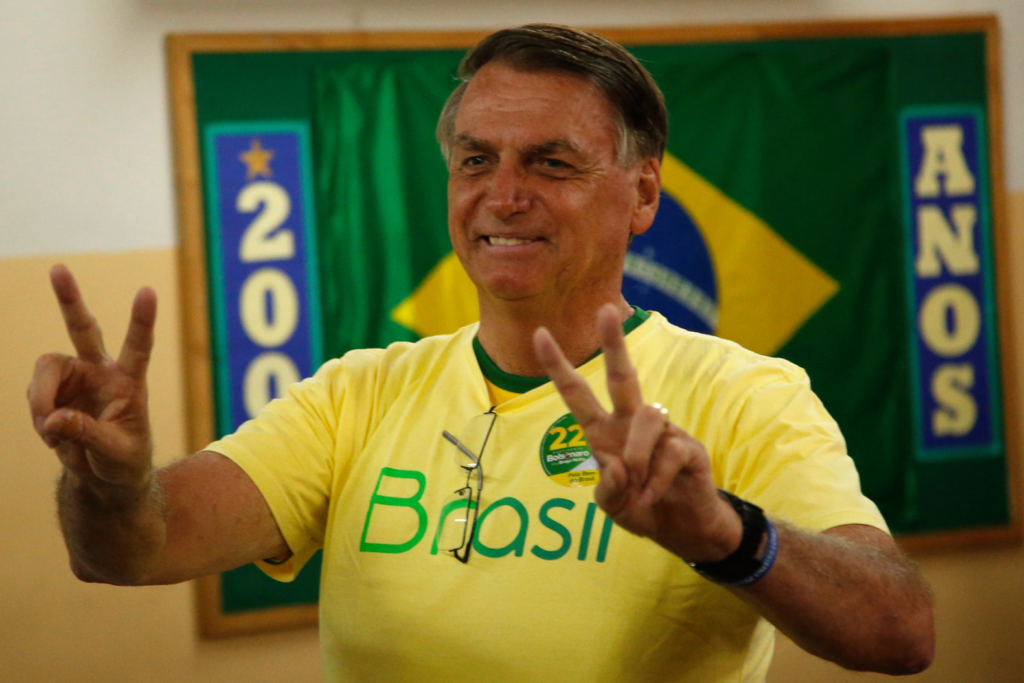Jair Bolsonaro loses Brazilian election as Lula stages historic comeback to win
Jair Bolsonaro, a right-wing autocrat, has lost his reelection bid, losing by an uncomfortably thin margin to Luiz Inacio Lula da Silva

Incumbent Brazilian president Jair Bolsonaro has lost to challenger Luiz Inacio Lula da Silva in the heated and high-stakes Brazil presidential runoff election on Sunday.
With 98.8 percent of the votes tallied, da Silva had 50.8 percent and Bolsonaro 49.2 percent, and the election authority said da Silva’s victory was a mathematical certainty, as Associated Press reports.
Prior to polls closing on Sunday, Brazil’s Federal Highway Police (PRF) was accused of creating illegal roadblocks in northeastern Brazil where Lula is popular in an alleged attempt of voter suppression. Critics claim the PRF is aligned with Bolsonaro and that its workforce was potentially impeding Lula supporters from casting their votes. The Superior Electoral Court (TSE), which runs Brazil’s elections, denied the allegations. The TSE said no one had been prevented from voting, but it added that the police operations would be investigated, as CBC reports.
What’s more, Bolsonaro had made claims of voter fraud in Brazilian elections, which has instilled fear in citizens who have lost faith in the system and gives rise to the concern that since he has lost the race, that he might challenge the results, and cause a potential coup.
Neither candidate gained the more than 50 percent of the votes necessary to win the election on Oct. 2, which led to Sunday’s runoff between far-right incumbent Bolsonaro and the former leftist president Lula da Silva, who served as president for two terms — 2003 to 2006 and 2007-2011.
During Lula da Silva’s presidency, as CNN notes, he guided Brazil through a commodities boom that aided social welfare programs and pulled millions up from poverty in the country of more than 216 million people.
In the country where it is mandatory to vote for all people aged 18 through 70, 156 million of the population is eligible to vote.
Leading up to Sunday’s nail-biting, tight contest, Lula da Silva was ahead in the initial October election, with 6 million more votes than Bolsonaro and around 5 percentage points. However, Bolsonaro had the lead in pivotal southeastern states, including São Paulo and Rio de Janeiro.
A poll by Datafolha on Saturday found that 52 percent of Brazilians would vote for Lula da Silva, while 48 percent would choose Bolsonaro. The narrow margin pointed to the tension and polarization stemming from concerns over rising inflation, increasing poverty, and limited economic growth in the country.
While Lula da Silva left office with a 90 percent approval rating, he was later charged in the criminal investigation dubbed “Operation Car Wash” — which involved accusations of money laundering, bribes, and other corruption allegations — alongside hundreds of other high-ranking officials in Latin America. He was convicted for corruption and money laundering in 2017, but a court threw out his conviction in March 2021.
Meanwhile, Bolsonaro became the 38th president of Brazil running under the conservative Liberal Party. Known as “The Trump of the Tropics,” his extreme far-right policies include being a climate denier whose policies have led to major deforestation of the Amazon rainforest, downplaying Covid, and sowing distrust of vaccines. The virus has killed more than 680,000 people in Brazil.
